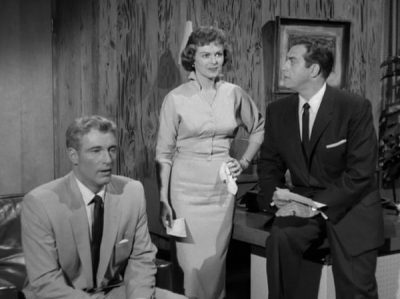
Can I Be Evicted Just Because My Apartment’s An Illegal Unit?
Can I Be Evicted Just Because My Apartment’s An Illegal Unit?
Apartment’s an illegal unit.
I’m a protected tenant (65yrs old + 15 year resident) in an illegal unit. The building was recently sold and purchaser was aware of my protected tenant status. It appears that the strategy that is being used to get me out, is to have a building inspector come in to declare unit illegal and also possibly identifying some kitchen defects (venting). Owner has offered $5000 above relocation costs if I agree to get out without having inspector involved. The new owner would be reclaiming my unit for his own use without plans to use it as rental unit.
Can you please tell me what if any options I have if my apartment’s an illegal unit.
First, you need to determine if indeed your unit is illegal. Often illegal units take the form of in-law units under single family dwellings. One can find many of them in the Richmond and the Sunset. There are three characteristics that indicate a unit may be illegal.
No separate PG&E bill. If you are sharing your gas and electric bill or the landlord is paying the utilities, the unit is not separately metered. Of course there are quite a few big buildings and complexes like the Golden Gateway that are not separately metered. But two and three unit buildings usually have separate meters.
Ceiling height. Generally the Uniform Building Code requires a minimum ceiling height of 7’6″. If the ceilings in your unit are lower and you share PG&E, there’s an even bigger chance the unit is illegal.
Secondary egress. If a unit has no secondary means of egress (a second door or window to use to escape from a fire), that’s another big indicator that the unit could be illegal. Think garden apartment at the back of a garage where the only entry and exit is through the garden. Units that only exit into a garage are usually illegal. Converted attics without a fire escape are often illegal units.
SF Assessor-Recorder’s website. In a typical scenario one will find that the Assessor lists the property as a single family house with one unit, even though there is an in-law in the building.
Finally, you can search the Online Permit and Complaint Tracking at the DBI website or if you cannot find any information there make a records request to view the permits and the certificates of occupancy or certificates of final completion at the DBI Office.
Now to your question. You can never be a protected tenant if you live in an illegal unit. Not possible. Because the unit is illegal, it should not be rented at all. You must dispel yourself of the notion that you will be able to stay if the landlord calls the DBI to violate the unit.
The “kitchen defects” to which you refer are not defects. If the DBI cites the unit as illegal, the landlord will be required to “remove the unit from the rental market.” That is accomplished by removing the kitchen, the factor that defines the apartment as a separate dwelling unit.
You should be aware that in order to be legally evicted, the landlord will have “to demolish or to otherwise permanently remove the rental unit from housing use” pursuant to Rent Ordinance section 37.9(a)(10). The landlord must obtain all the necessary permits, give you with a sixty-day notice to vacate and provide you $8,502.00 in statutory relocation benefits.
It is interesting that the landlord does not want to report the unit to DBI. He has not offered you much more than the statutory amount to vacate and he misrepresented (lied about) the relocation amount. Something is very fishy.
I flat out don’t believe the claim that the new owner wants to use the unit for himself. If that’s the case, why all the subterfuge? Forgive me my cynicism, sometimes I can confuse cheap and cheesy with diabolical. But the results are the same–the tenant gets screwed.
You should also understand that the landlord may be liable to you for civil damages. For example, if the landlord originally rented the unit to you and represented it as a legal unit, you may have damages for fraud and/or void contract that could, theoretically, entitle you to demand that the landlord refund all of the rent you paid for 15 years. I say theoretically because there are a whole bunch of factors that need to be evaluated for your specific case.
Go to the San Francisco Tenants Union to discuss your specific options. In the meantime don’t sign anything.




 This is a dance you probably shouldn't try to do by yourself. Almost all tenants need a lawyer to lead. You likely have a better chance buying a house than you do prevailing in an unlawful detainer by defending yourself.
This is a dance you probably shouldn't try to do by yourself. Almost all tenants need a lawyer to lead. You likely have a better chance buying a house than you do prevailing in an unlawful detainer by defending yourself.



